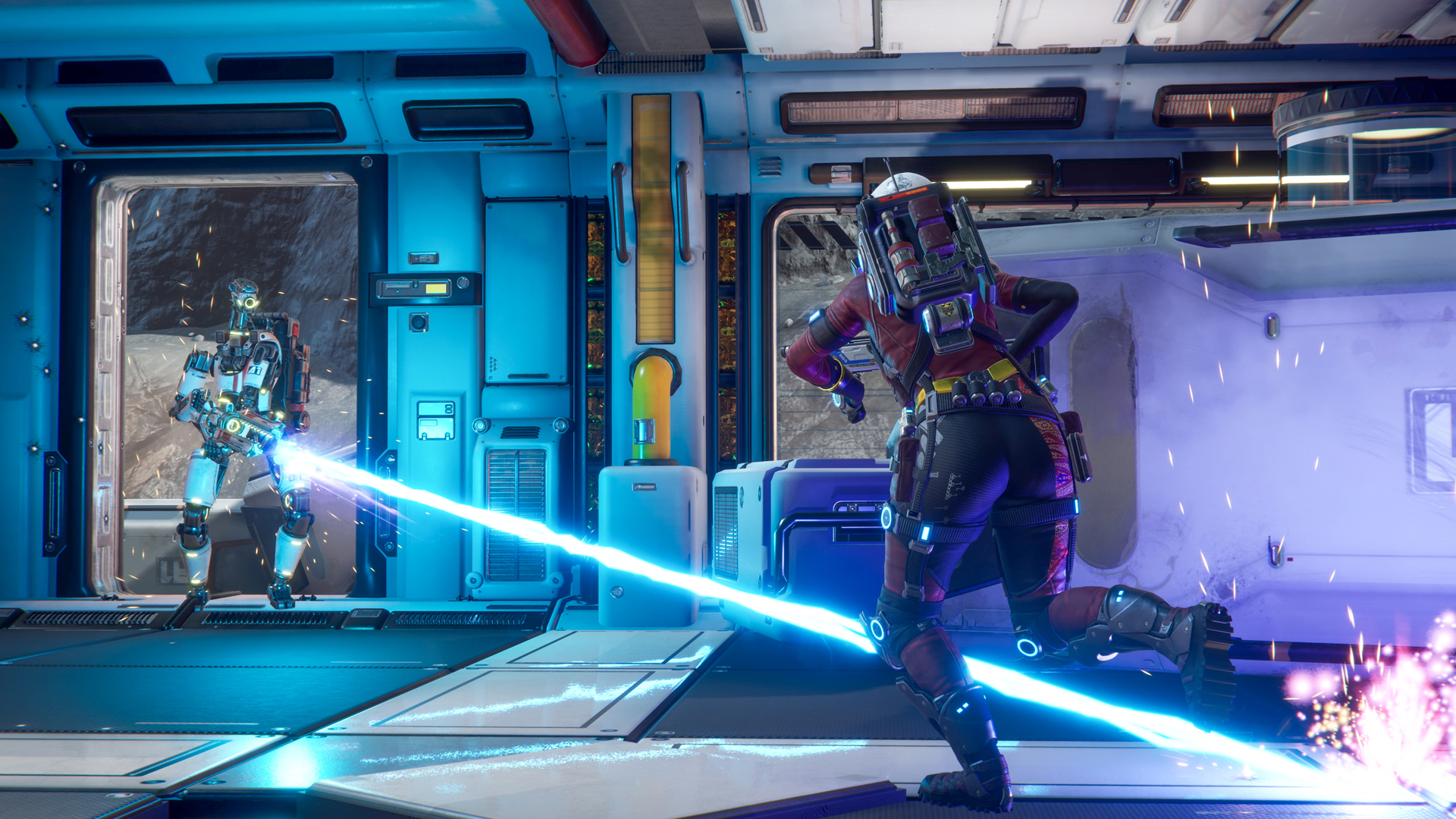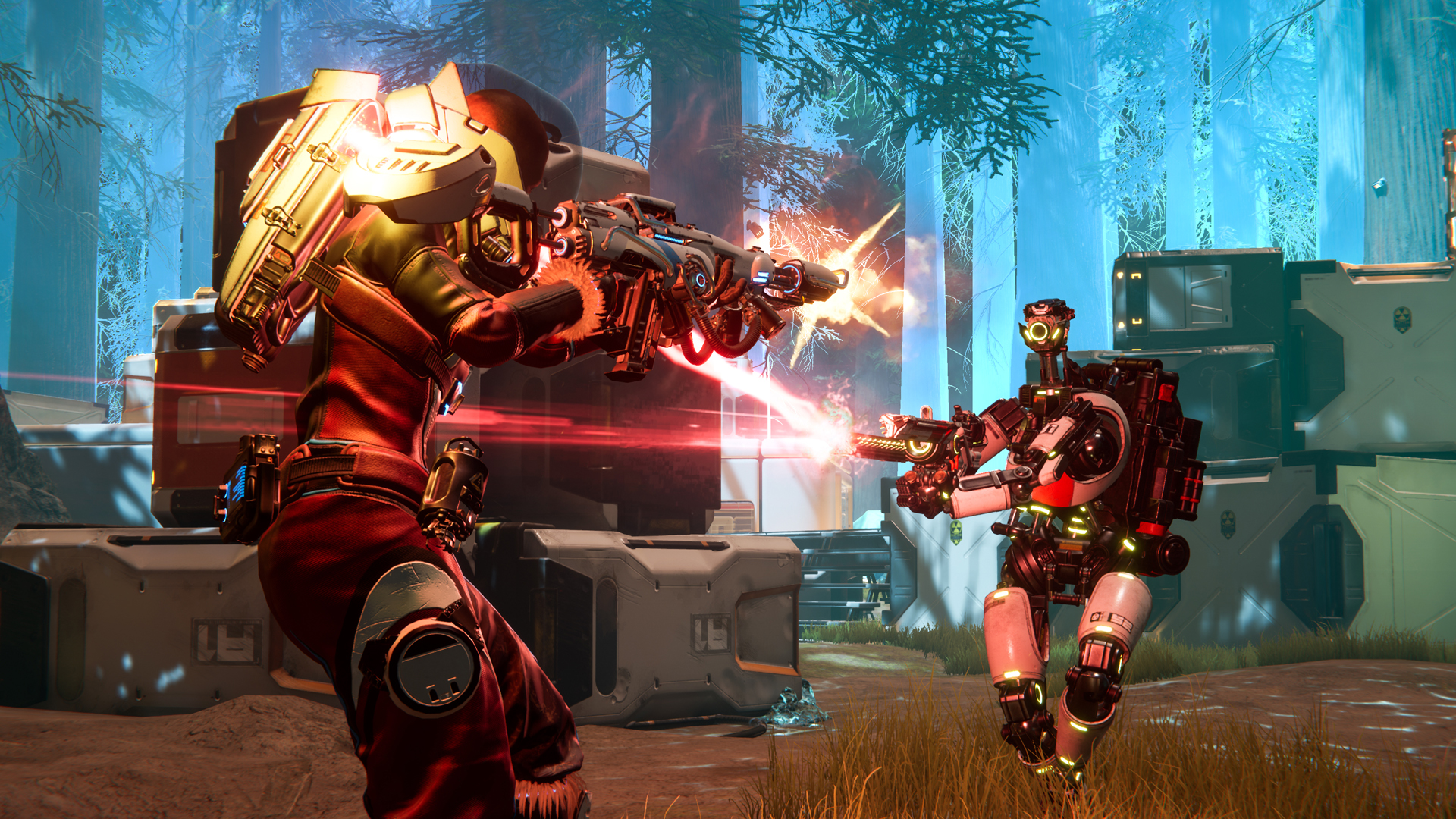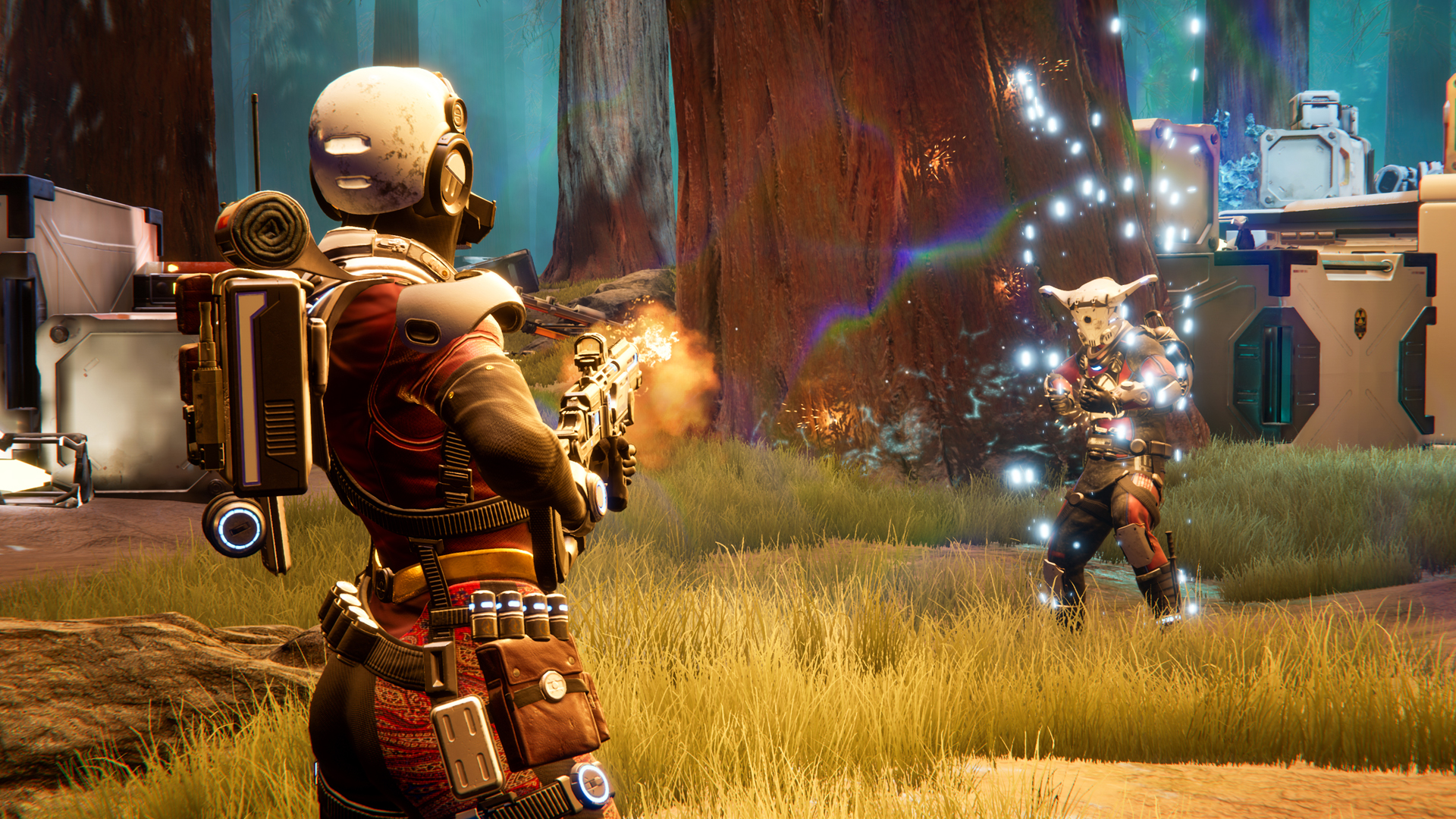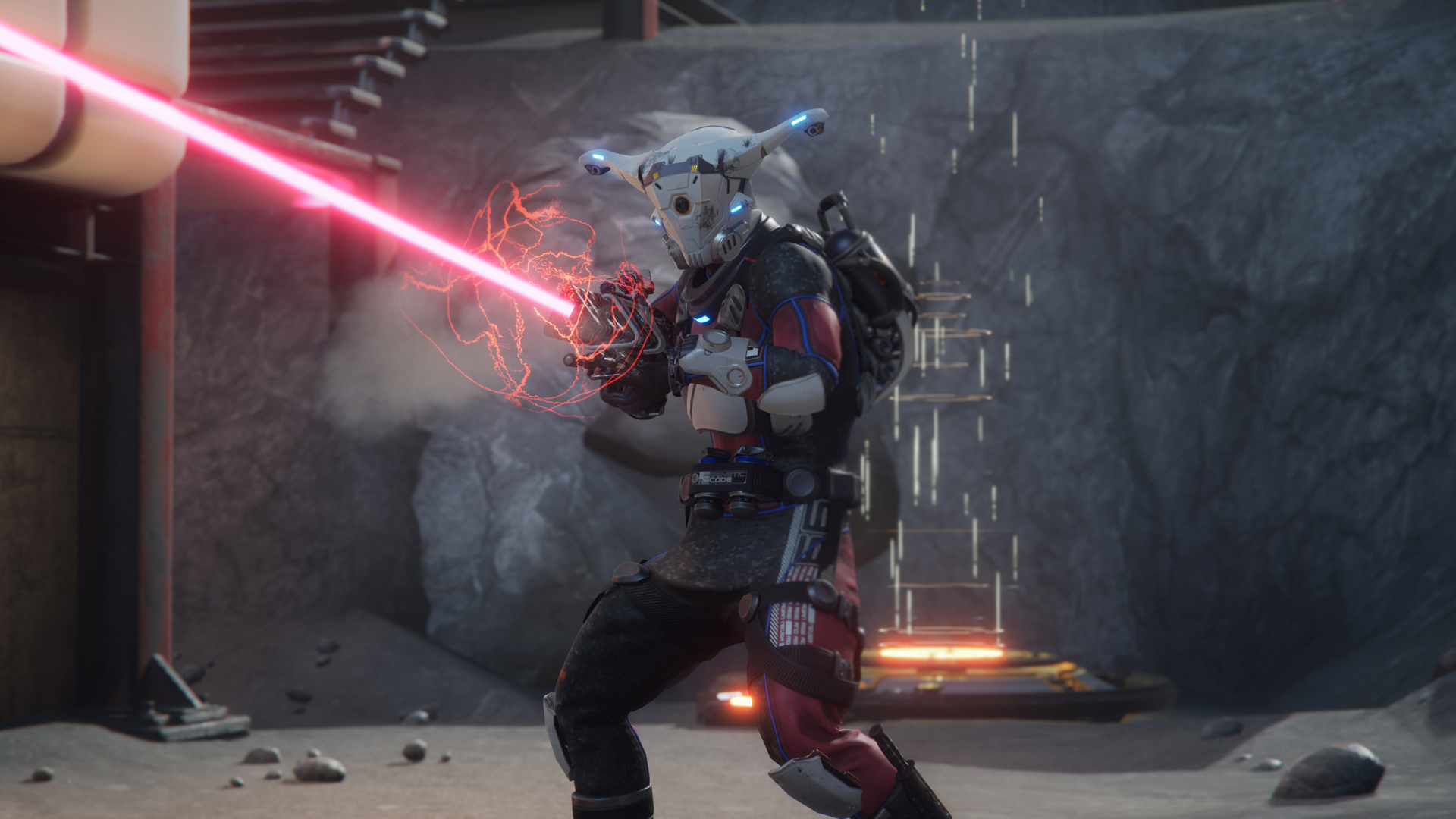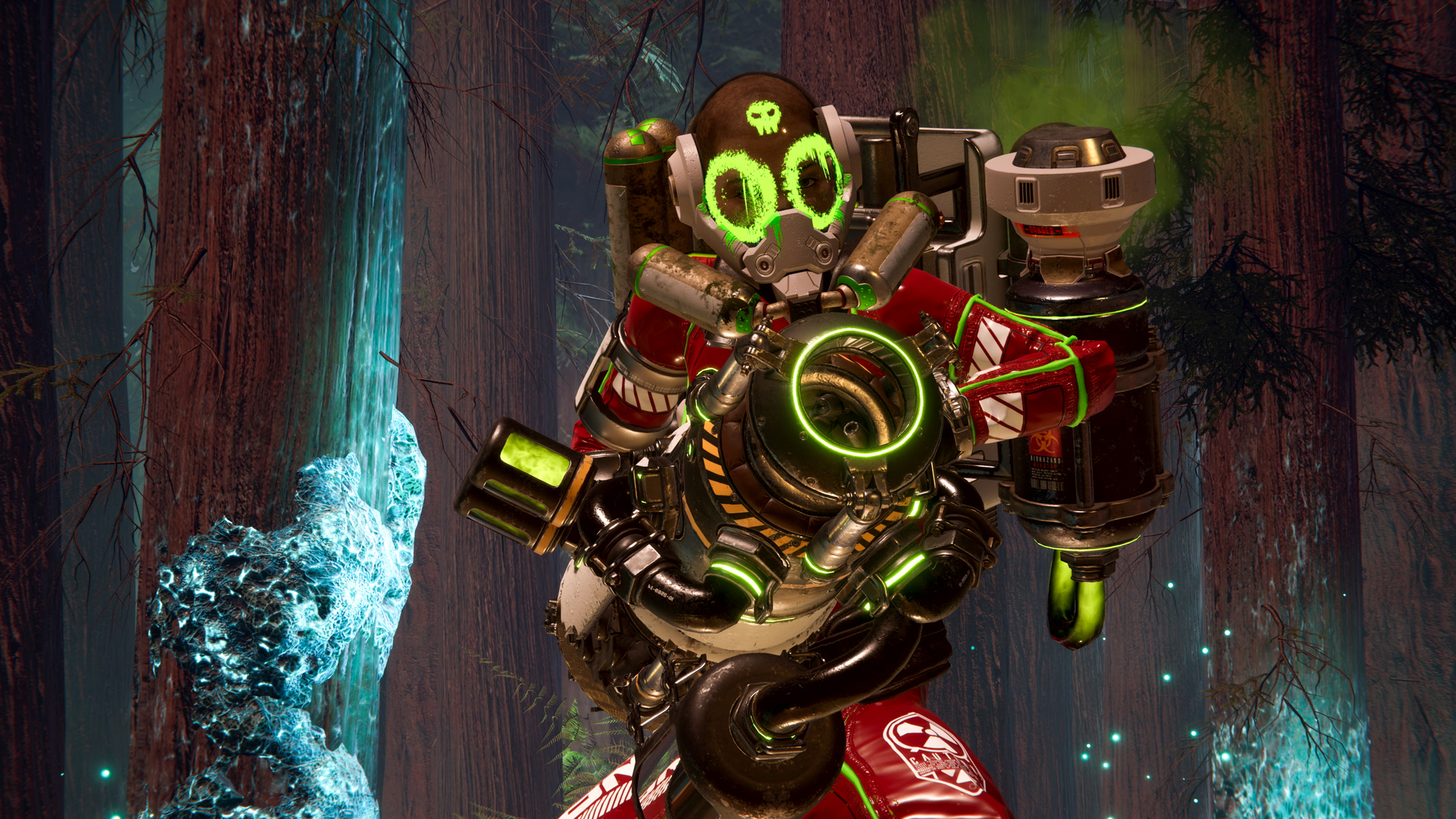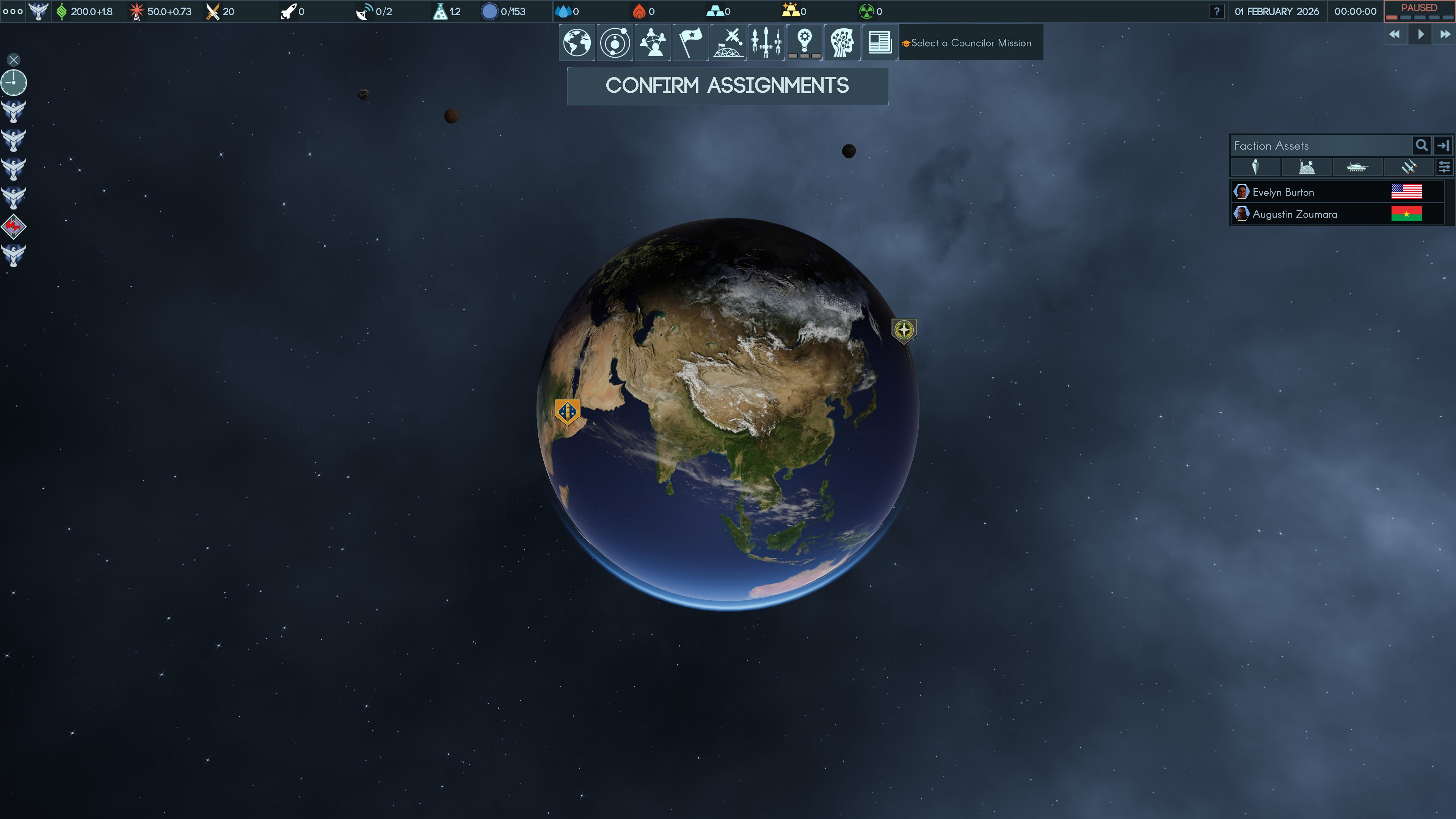Lemnis Gate is a time loop FPS where every second counts
You'll need to train your brain to see the past, present, and future before making your move.
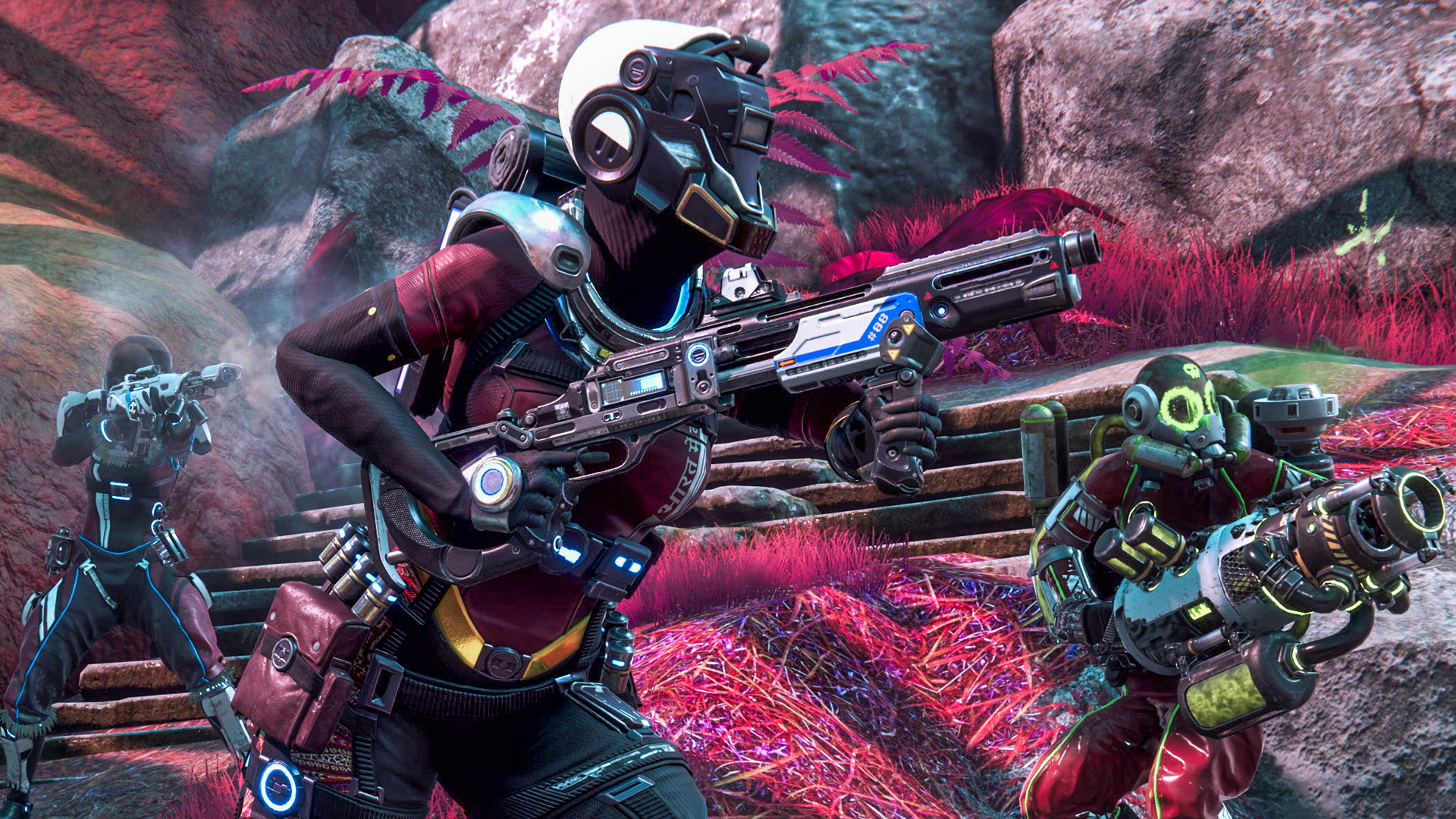
I'm standing on the rocky slopes of an alien planet. After spending the first round racing around the map as Rush, an agent heavily inspired by Overwatch's Tracer, my game plan is already in motion. Using my kinetic booster ability to zip around the map, I've started capturing each of the four points. There's no time to waste, so I land a few shots on each tower to get the ball rolling. Then the time loop begins: In subsequent rounds Rush will diligently return to each tower, taking the exact same path and reliving that first round over and over to eventually capture them.
Now it's my opponent's turn. They spend the first 15 seconds gunning down a couple of towers before setting their sights on my Rush. Having chosen Vendetta, their abilities let them place turrets which can neutralise my character in a few short bursts. Rush is now hurtling down a doomed path, blissfully unaware that there's a deadly barrage with their name on it. They'll die before this round ends.
Do I save Rush by taking out the enemy Vendetta before they can even place their turrets? I could place a protection orb to obstruct the enemy fire, but that means I won't be able to shield the rest of my squad later. Maybe it's wiser to sacrifice Rush for now and work out a way to protect them later. Either way, the clock is running.
Lemnis Gate is a turn-based combat strategy FPS that unfolds in a time loop. As far as descriptions go, I concede that's one helluva mouthful, and after hopping into some games I still don't think it quite captures what makes Lemnis Gate special. Its time loop lasts just 25 seconds, and over the course of the game, you'll be tasked with an objective such as capturing towers, or collecting materials. Matches are split across 10 rounds which alternate between one/two players in its 1v1 mode, or four players in 2v2.
Another thing that sets Lemnis Gate apart from other shooters is that you control your entire team one by one. Think of each round as a 25-second window that lets you record your character's actions, which repeat every round. Meanwhile, your opponent is doing the same thing. As the rounds progress you'll have more bodies in the field, and you'll need to balance how you spend your resources, whether it's using your abilities to focus on completing the objective, aggressively stalking and removing your opponent's team, or a mixture of both. From the moment the match begins, it's an ongoing struggle between sides, and you can keep disrupting the time loop to change how each round plays out.
"There's this whole concept of causality as a gameplay pillar, and the butterfly effect where one action can actually trigger a whole cascade of events", James Anderson, game director at Ratloop Games Canada, tells me. So, if you send out a character in the first round, and your opponent kills them halfway through the loop in the second, they won't be able to finish the actions they originally completed in that round. Once a character has 'died', that's it until the loop resets and they respawn, only to die again prematurely unless you intervene. If you can work out how to avoid losing them, you'll restore their original loop and they'll go about their business as planned.
There are lots of variables to consider here, including things that both you and your opponent will do in the future that you haven't even thought of yet, and this was something that I struggled to get my head around at first. Decisions like shutting down two enemies at once, or finally capturing a point felt like huge, game-defining moments at the time... until the next round where my opponent found a way to squish my carefully laid plans. It's easy to waste time agonising over what to do next, but in a game with strict time constraints, you need to commit quickly and confidently to stand a chance at winning.
Keep up to date with the most important stories and the best deals, as picked by the PC Gamer team.
There's this whole concept of causality as a gameplay pillar, and the butterfly effect where one action can actually trigger a whole cascade of events
James Anderson
To ensure matches don't descend into complete chaos, Lemnis Gate challenges us to split our time between actually playing the game like an FPS and planning our next moves like a strategy game. While my opponent was taking their turn, I could fly around the map using the spectator drone to see how my team was doing. I could also see what my opponent was up to in real-time, which helped me to decide what to focus on next.
Compared to my preferred competitive shooter CS:GO, this almost feels like cheating. Existing FPSes don't let you pause, zoom out, and reassess the situation from above. But nothing is set in stone in Lemnis Gate, and knowing that I could spend the next round mopping up my previous mistakes and potentially shift the tide of the entire game introduced me to a whole new type of stress.
Other shooters have trained me to react to immediate threats, so having to weigh up the long-term impacts of my actions was especially challenging. My mind was bouncing around between the problems that had already emerged, tasks I still needed to carry out this round, and anticipating how my opponent might counter me. While this is an exhausting mindset to be in, it's fun when it finally clicks as you can be even more creative with your strategies.
If you use your mental skills really well, you can actually outperform and beat a player who's perhaps a better aim than you
James Anderson
Anderson also tells me that the game has a high skill ceiling, which makes it even more rewarding to spot an opening to hit your opponent hard. "If you look at the very high level players, they'll actually study the board [and] they'll use the full thinking time to find these key, critical operatives and moments, and then try to target those moments to swing the game in their favour." Positioning and awareness are the skills we'll need to master to win matches in Lemnis Gate, and "if you think in layers, and you don't think in linear time, you can actually be more efficient or optimise the things you do."
"We wanted to [make] something where you can use your mental skills, and your physical skills together", Anderson explains to me. "In some cases, if you use your mental skills really well, you can actually outperform and beat a player who's perhaps a better aim than you." So, there's no need to sweat it if you're not a Global Elite-level rifler, but that's not to say that you won't need to school up on how Lemnis Gate's classes work. In fact, you'll need to know how they all operate, and when it's best to exercise their strengths.
The game features seven operatives, each equipped with a unique weapon and ability. These characters can only be used once per game, which introduces another layer of strategy. I was eager to play as Kapitan, a familiar agent who uses an all-purpose AR, but later realised that their frag grenade is far more valuable later on when I have an enemy to lob it at. Similarly, Vendetta's turrets and Toxin's tox cannon are better spent on targeting enemies. Rather than commit to being a sniper, support, or DPS for the duration of a match, you'll get to play as most of them.
If you think in layers, and you don't think in linear time, you can actually be more efficient or optimise the things you do
James Anderson
After sinking hours into team-based shooters like Overwatch and battle royales like Apex Legends, the prospect of managing and controlling my entire team without trading the exciting first-person perspective for a full-on strategy game is very appealing. It's also nice to command a team without having to rely on other humans. We all know how frustrating it is when one person isn't pulling their weight, so it's nice that there's an option to keep things strictly 1v1. As you'd expect, it's tricky to switch between an overseeing team coach role to an operative out in the field. But even in the few hours I spent with the game, I started to piece together solid strategies that yielded decent results for my first try.
So far, I'm really impressed with what I've seen of Lemnis Gate. I wasn't convinced that I'd be as enthusiastic about an FPS that's born from the idea of not being the sharpest shooter in the server, but Ratloop Games has changed my mind. It's 1v1 mode showed me just how equally challenging and fun it is to command a team of different characters, and the stakes felt even higher when I was working cooperatively in 2v2.
I'm not a huge fan of turn-based strategy games, but I'm intrigued by how Ratloop has managed to blend these genres together. Lemnis Gate feels like it borrows just enough from each to create a unique, yet fast-paced experience where there's always room to improve. While I've only checked out a couple of modes, I'm keen to see more of what it has to offer.
It's fair to say that competitive time loop shooters aren't exactly a brand new concept—Quantum League released recently—but it feels as though Lemnis Gate will have an edge on the competition when it launches later this year. Not only does it let you experiment with multiple classes every single game, it gives you time to spectate and prepare for your turns, leading to big brain plays that are exciting to execute and watch.
As PC Gamer's guides writer, Emma is usually juggling several games at once. She loves competitive first-person shooters like CS:GO and Call of Duty, but she always has time for a few rounds of Hearthstone. She's happiest when she's rescuing pugs in Spelunky 2.
